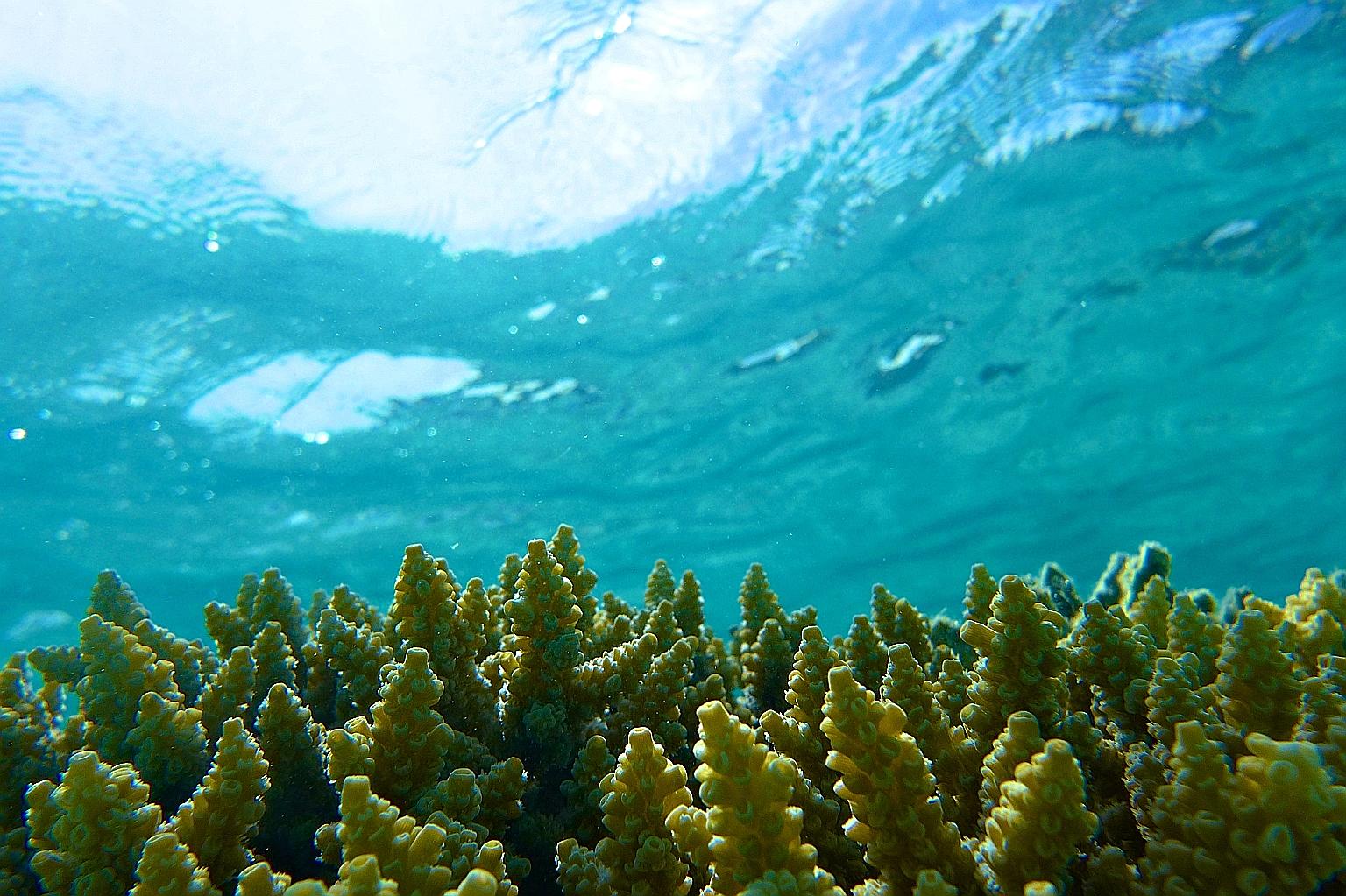Viruses 'may be keeping coral reefs healthy'
Sign up now: Get ST's newsletters delivered to your inbox

The Chagos coral atoll in the Indian Ocean could be thriving with the help of viruses, according to research by marine biologist Federico Lauro. The viruses can infect and break down a type of cyanobacteria called Synechococcus to release nutrients for the corals.
PHOTO: RACHELLE JENSEN
Coral reefs are one of the most vibrant and colourful habitats of the ocean, but the key to their health could lie in organisms not visible to the naked eye.
Microbial communities comprising viruses and bacteria could be the unlikely drivers of coral reef health, according to research by a marine biologist from Nanyang Technological University .
During a study of a pristine ring of coral in the Chagos Archipelago in the Indian Ocean, Associate Professor Federico Lauro found that the water within the coral ring contained more of a type of virus than the surrounding water, despite constant water exchange.
The Italian's research has indicated that it could be these viruses that are helping the coral reefs there to thrive.
Known as bacteriophages, the viruses can infect and break down a type of cyanobacteria - organisms that make their own food through photosynthesis - called Synechococcus. The destruction of Synechococcus releases nutrients such as nitrogen- and phosphorous-based compounds, which nourish the corals.
"Not all viruses are bad. Some of them are good and, in this case, they could play a role in cycling nutrients," said Prof Lauro.
"In a healthy human, there is a balance of the different types of microbes in the body, and it is the same for coral reefs."
The Chagos Archipelago is uninhabited except for military personnel, and is part of a marine protected area established by Britain. The water there is clean, and the coral reefs in the area are considered among the healthiest in the world.
Prof Lauro's research has wider implications for coral reef conservation, as scientists can now look beyond physical factors, such as sedimentation, to determine why reefs are dying and how to restore them.
"There is a clear indication that the viruses have an effect on the Chagos coral atoll, and it is interesting to study how biological factors are affecting other reefs," he said .
The research was conducted aboard his own recreational sailing boat, the 18.5m Indigo V. "This shows that you don't need a large oceanographic vessel to do good science, and a lot more ocean samples can be collected by recreational boat owners who are sailing the world in their own time," he said.
His study cost $70,000, a fraction of what a similar study on board a large oceanographic vessel with high-tech scientific devices could cost. For his work, he clinched the prestigious Lowell Thomas Award for Innovation in Conservation last November.
This is an international award which last year was given to explorers who exhibit excellence and innovation in conservation, with emphasis on emerging techniques and technologies. Past winners include Sir David Attenborough, the golden voice of nature documentaries, and Edwin "Buzz" Aldrin, one of the first men to walk on the moon.
On his win, Prof Lauro said: "It was surprising, considering that the past winners like Sir David Attenborough are so good, but I hope that the win will help us get funding for the Indigo project, for more exciting science."
He is due to set off on another research trip to the Indian Ocean on board Indigo V later this month.
Assistant Professor Huang Danwei of the National University of Singapore's Department of Biological Sciences said: "The methods established (by Prof Lauro) also pave the way for a convenient approach for even non-scientists to contribute to the monitoring of various marine environments, including coral reefs, which have distinct microbial signatures."
Audrey Tan


